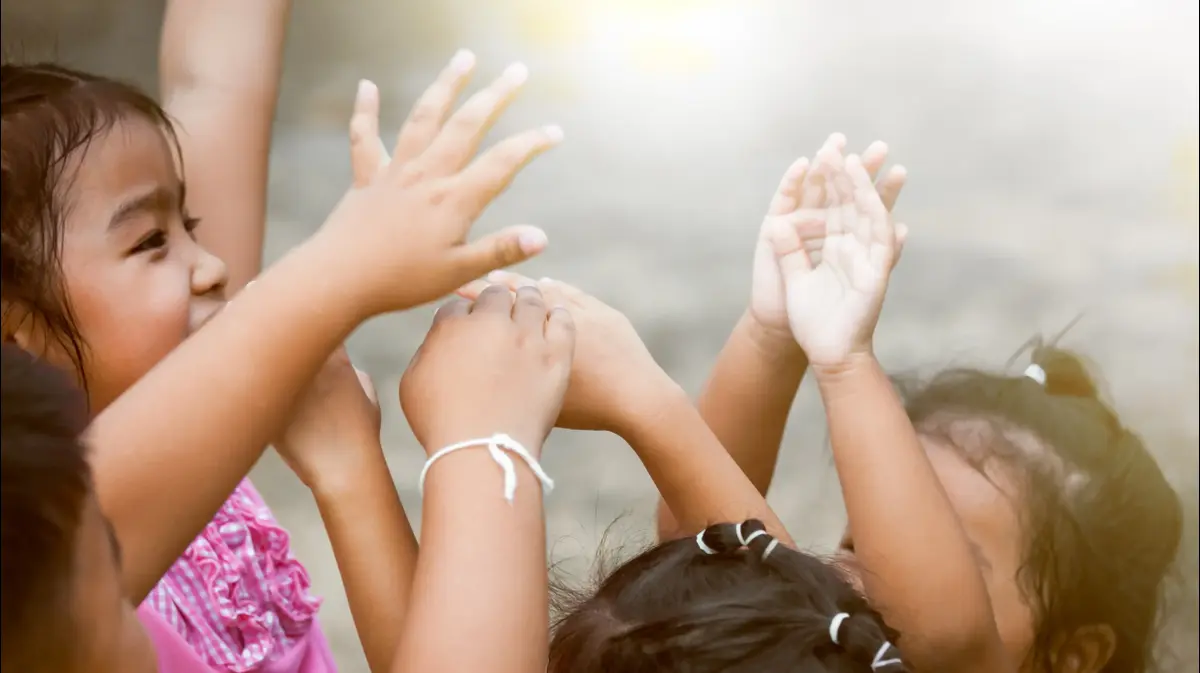health
New parents
How to teach children to beware of strangers without scaring them?
The world is a tough place, and we all want to raise children who know how to protect themselves from dangers.
But how do you do that?
Here are the rules that will teach your child how to behave with strangers
Tags
parenthood
Children
Strangers
Daniel Sarantsky, in collaboration with JAMA
Wednesday, 22 September 2021, 07:25
Share on Facebook
Share on WhatsApp
Share on general
Share on general
Share on Twitter
Share on Email
0 comments
Remember when and how you were taught to be wary of strangers and not be tempted to go with them or answer questions?
Since that was some years ago, and today you are already a parent, it is time to refresh your memory so that you can pass on this important knowledge to your child as well.
More on Walla!
Awake?
how not?
Listen to a podcast for new parents
To the full article
So how will you teach him to beware of strangers without flooding, stressing and arousing fears and anxieties?
Liraz Sneh Orr, a mother of five, a social worker and a certified parent counselor at the Adler Institute, offers some rules to help:
1. Do not talk to strangers when there is no known adult in the area
This is the first rule the child should know.
Explain to him in simple language that we take care of ourselves and our bodies so he will not talk to people he does not know when there is no known parent or adult around.
It can be expanded and explained that if you do not know then do not talk to the same person, do not answer questions, do not give him details and do not go with him anywhere, even if he looks nice and inviting to a fun place, even if he offers candy or toy.
For the JAMA
2
app
. My body is in my possession
Teach the child from a very young age the limits of his body: head, arms, legs, abdomen, back and private organs.
Private organs are those covered in a bathing suit or underwear, which no one is allowed to touch, except father and mother, a doctor (by consent) or other agreed family members like grandparents.
Bath time is a wonderful opportunity to meet and get to know the organs of the body in an experiential and pleasant way: say the name of the organ, for example hands and the child will soap them.
The child was explicitly told: "No one is allowed to touch your body except mom or dad."
The more the child knows his body and understands that he is in his possession and no one is allowed to touch him without his permission, the greater will be his protection from strangers.
Great time to get to know the body and its limits.
Girl taking a shower (Photo: ShutterStock)
3. Respect the "no"
Grandma wanted a kiss but the boy flinched and turned his cheek? A lot of parents say, "It's not pretty, give Grandma a kiss so she doesn't get offended," or they hug the child against his will and he shouts "Enough." In this way the child is conveyed conflicting and confusing messages that blur the boundaries. On the one hand you made it clear to him that he had control over his body, and on the other hand you demanded from him a physical touch that was unpleasant to him? As parents we must make sure that the child recognizes what he likes and what does not, what touch he likes and what he does not, and encourage him to say clearly and explicitly what he does not like.
You must listen and respect what the child feels and asks for, even at a price that one of the family members may be offended. If he does not want a kiss - then no. It is better for the adult to be offended than for the child to be Japanese who is allowed to touch his body in an unpleasant way just because someone else wants to. Remember, the child's ability to say what is unpleasant to him and to stop the kind of touch he does not like is significant to his protection from being harmed by strangers. Learn about the importance of expressing affection in contact with family members on another occasion, when you allow the child to choose whether he wants it and respect his decision.
4. Speak the emotions
Many children express their desires and frustrations through whining, crying, shouting or prostrating on the floor, and in general, remember that crying is through the initial attachment through which the baby expresses his needs and feelings?
When he was hungry, felt discomfort or gas he cried and you immediately responded to his request.
As the child grows you should encourage him to express his desires, feelings, emotions and frustrations verbally.
The next time the child lies on the floor and cries, they tell him - you are basically saying "I do not want".
The more the child knows how to express his feelings verbally, the greater his degree of protection from strangers.
Safety rules in public places
Still, there are situations where it is impossible to completely avoid talking to strangers, such as if the child got lost in the mall or on the beach today. Therefore, before you go out to a public place, explain to the child some important safety rules:
● Walk close to mom and dad and do not walk away. It is best to give a hand and of course always maintain eye contact.
● In case you get lost, you must reach the meeting point that you agreed on in advance.
● If you need help - look for a mother with small children and approach her.
The Jama app was established with the aim of addressing mothers of babies from birth to age three, and centralizing for them content, activities, tips from experts and videos that will accompany them throughout this challenging period. All the content in the app "grows" together with the baby and is precisely adapted to its developmental stages, so that the mothers receive only what is relevant to them and interests them at any given moment.
The Jama app is the place for mothers in Israel to meet and get to know other mothers around them, and create new and exciting friendships in the fascinating journey.
Search us on Google: https://app.jama.co.il/
Share on Facebook
Share on WhatsApp
Share on general
Share on general
Share on Twitter
Share on Email
0 comments




/cloudfront-eu-central-1.images.arcpublishing.com/prisa/FQYPKSSQOJFJVNDS542UANG5GE.jpg)










